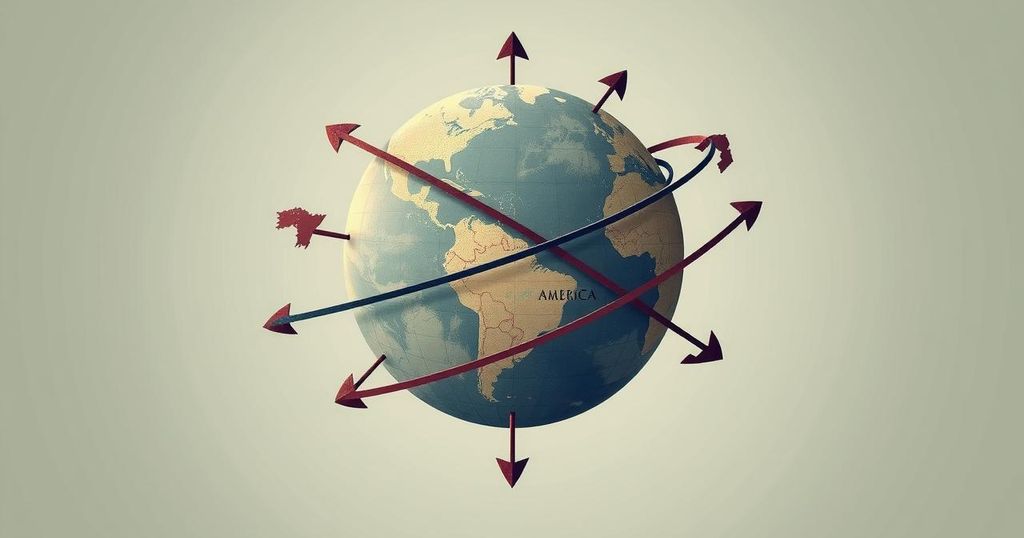Rubio Critiques Authoritarian Regimes for Migration Crisis

U.S. Secretary of State Marco Rubio criticized Cuba, Nicaragua, and Venezuela for causing a regional migration crisis, calling these regimes “enemies of humanity”. He particularly condemned Nicaragua’s political situation under President Ortega. Cuban President Diaz-Canel defended his country against Rubio’s claims, attributing migration to the U.S. embargo. Rubio continued his tour in Guatemala, following notable discussions in Costa Rica and El Salvador.
U.S. Secretary of State Marco Rubio has criticized the authoritarian regimes of Cuba, Nicaragua, and Venezuela, labeling them as “enemies of humanity” responsible for a regional migration crisis. During his visit to Costa Rica, Rubio emphasized that the ongoing migration issues stem directly from these governments’ ineffective systems, stating, “If it were not for these three regimes, there would not be a migration crisis in the hemisphere.”
Rubio’s remarks were particularly pointed towards Nicaragua, where President Daniel Ortega has consolidated power, leading to a family-led political dynasty. He condemned Ortega’s administration for suppressing the Catholic Church and punishing dissent. According to Rubio, this oppressive environment has driven thousands of Nicaraguans to flee, similar to those escaping Cuba and Venezuela.
Cuban President Miguel Diaz-Canel responded to Rubio’s comments via social media, accusing U.S. politicians of hypocrisy. He asserted that Cuba’s migrant outflow correlates with the long-standing U.S. trade embargo, which he claims deprives Cubans of essential goods. Diaz-Canel characterized Rubio’s statement as reflective of “neofascism” in the United States.
Rubio’s diplomatic tour continued with stops in Guatemala, following visits to Panama and El Salvador. In a remarkable offer, El Salvador’s President Nayib Bukele proposed housing U.S. gang member convicts in a new mega-prison and indicated readiness to accept deported gang members from other Latin American countries, including Venezuela.
The article discusses recent statements made by U.S. Secretary of State Marco Rubio during his trip to Latin America, where he addressed the ongoing migration crisis affecting the region. His comments focus on the perceived role of authoritarian governments in Cuba, Nicaragua, and Venezuela as catalysts for mass migration. The article also highlights the response from Cuban leadership, particularly emphasizing the long-term effects of the U.S. embargo on Cuba. Additionally, it touches on the political dynamics within Nicaragua under President Ortega and consolidates the broader implications regarding international diplomacy.
In conclusion, Secretary of State Marco Rubio has attributed the Latin American migration crisis primarily to the actions of authoritarian regimes in Cuba, Nicaragua, and Venezuela. His criticism has sparked a rebuttal from Cuban authorities, who point to the U.S. embargo as a key factor driving migration. Rubio’s tour underscores the intricate relationship between U.S. foreign policy and the political climates in Latin America, particularly regarding governance and human rights issues.
Original Source: www.hindustantimes.com







